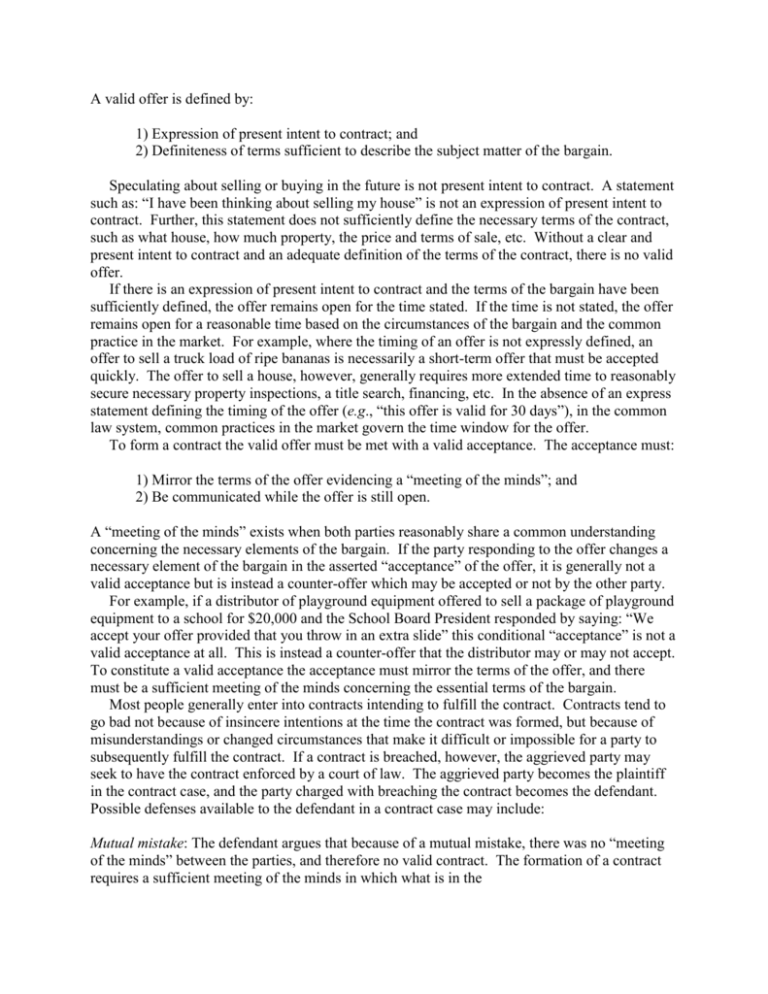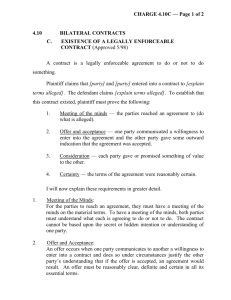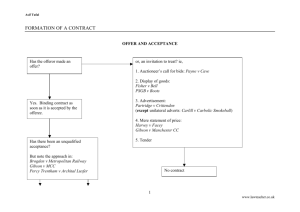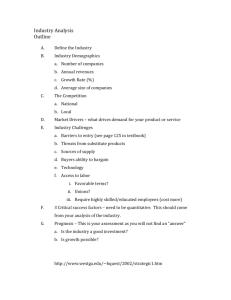A valid offer is defined by: 1) Expression of present intent to contract
advertisement

A valid offer is defined by: 1) Expression of present intent to contract; and 2) Definiteness of terms sufficient to describe the subject matter of the bargain. Speculating about selling or buying in the future is not present intent to contract. A statement such as: “I have been thinking about selling my house” is not an expression of present intent to contract. Further, this statement does not sufficiently define the necessary terms of the contract, such as what house, how much property, the price and terms of sale, etc. Without a clear and present intent to contract and an adequate definition of the terms of the contract, there is no valid offer. If there is an expression of present intent to contract and the terms of the bargain have been sufficiently defined, the offer remains open for the time stated. If the time is not stated, the offer remains open for a reasonable time based on the circumstances of the bargain and the common practice in the market. For example, where the timing of an offer is not expressly defined, an offer to sell a truck load of ripe bananas is necessarily a short-term offer that must be accepted quickly. The offer to sell a house, however, generally requires more extended time to reasonably secure necessary property inspections, a title search, financing, etc. In the absence of an express statement defining the timing of the offer (e.g., “this offer is valid for 30 days”), in the common law system, common practices in the market govern the time window for the offer. To form a contract the valid offer must be met with a valid acceptance. The acceptance must: 1) Mirror the terms of the offer evidencing a “meeting of the minds”; and 2) Be communicated while the offer is still open. A “meeting of the minds” exists when both parties reasonably share a common understanding concerning the necessary elements of the bargain. If the party responding to the offer changes a necessary element of the bargain in the asserted “acceptance” of the offer, it is generally not a valid acceptance but is instead a counter-offer which may be accepted or not by the other party. For example, if a distributor of playground equipment offered to sell a package of playground equipment to a school for $20,000 and the School Board President responded by saying: “We accept your offer provided that you throw in an extra slide” this conditional “acceptance” is not a valid acceptance at all. This is instead a counter-offer that the distributor may or may not accept. To constitute a valid acceptance the acceptance must mirror the terms of the offer, and there must be a sufficient meeting of the minds concerning the essential terms of the bargain. Most people generally enter into contracts intending to fulfill the contract. Contracts tend to go bad not because of insincere intentions at the time the contract was formed, but because of misunderstandings or changed circumstances that make it difficult or impossible for a party to subsequently fulfill the contract. If a contract is breached, however, the aggrieved party may seek to have the contract enforced by a court of law. The aggrieved party becomes the plaintiff in the contract case, and the party charged with breaching the contract becomes the defendant. Possible defenses available to the defendant in a contract case may include: Mutual mistake: The defendant argues that because of a mutual mistake, there was no “meeting of the minds” between the parties, and therefore no valid contract. The formation of a contract requires a sufficient meeting of the minds in which what is in the







